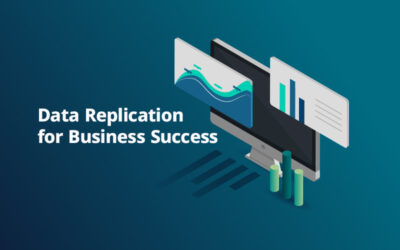The concept of the paperless office, not withstanding its attractiveness, is yet to become a reality in most business organizations. While many organizations are marching ahead on the digital path with the competent support of professional document scanning companies, quite a large number are left behind. The mortgage industry is a case in point with only very few completely digital mortgage organizations. It is important for this industry sector to think of benefits such as accuracy, speed, convenience and cost savings that digital processes can ensure.

Mortgage originations and closings involve hundreds of paper documents that need to be authenticated and scrutinized against many regulatory and risk-based measures. Also, these pages have to be shared with a large number of separate vendors for processing and subject to compliance and quality-control reviews. If these documents are transmitted and processed digitally, mortgage originators can create a competitive separation. The tools to provide this digital capability are already available. If mortgage originators do not keep up with the digital trend and be prepared for the digital future, their systems will soon become outdated. On the other hand, if they are proactive enough, they can go almost entirely paperless, save considerable time and money, and ensure better quality customer service.
To support the digital initiative in the mortgage sector, Equifax Inc., a consumer credit reporting agency, recently announced its Work Number Indicator, which helps lenders know whether a borrower’s income and employment information is already available within Equifax’s U.S. database. This can help eliminate a tedious documentation process for borrowers and also significantly speed up the mortgage origination process for lenders.
How Technology Supports Mortgage Originators
- Auto-indexing and Optical character recognition (OCR) – Digitizing paper documents is an important task. More advanced processes such as auto-indexing and optical character recognition offers undeniable value to mortgage originators. Scanned documents become digital images of individual pages. Auto-indexing evaluates these pages and uses a predefined set of visual cues to group them into different categories. For mortgage originators, this means that loan packages consisting of large number of documents and hundreds of pages can be split into separate files and sent to different vendors in minutes. OCR and its more advanced variant, intelligent character recognition (ICR) also examine scanned documents. These technologies convert digital photos of words on a page into digital text that can be copied and searched, instead of simply categorizing them. Digitization minimizes manual data entry and reduces the need to transcribe or re-key information from one system to another.
- Robotic process automation – Robotic process automation using virtual agents, popularly known as bots, are becoming accessible to a much wider audience. Botscando the same tasks that a human performs such as copying information from one computer program and pasting or typing that information into another window or online form with greater speed and accuracy. They can complete the tasks at a fraction of the time a human would take and can continue working round the clock at maximum efficiency without tiring. These bots take only days to do tasks instead of months and do not require businesses to change the way they operate. The technology is a cost-effective and quick-deploying solution for integrating different information systems. Bots can check documents against hundreds of business rules in a matter of seconds. This capability makes audits and compliance reviews a prime target for automation. This is the reason why bots are very important for mortgage originators. In addition to that, any process that can be defined and repeated can be automated by bots including activities not specific to the mortgage industry such as invoice and payroll processing.
- Dynamic-Process Workflows – Dynamic-process workflows are essential components of any well-designed paperless environment. They make sure that tasks get completed as soon as possible by triggering next steps in each process as soon as set prerequisites are met. For instance, when a borrower submits specific loan documents, the relevant personnel on your team are informed. These workflows are dynamic in the sense that a completed task can trigger different events depending on whether it succeeded, who performed the task, what time of day it is or any number of other variables. They also provide a method to combine bots with the human workforce. Once a bot finishes its job, workflow prompts can inform the human worker who has to review, approve or perform some other task. Likewise, workflow prompts can pass completed digital items from humans to bots as soon as possible, thereby keeping the business operations running smoothly.
- Smartphone APP – Streamlining and automating office processes are beneficial for most mortgage companies. With digital transformation, lenders can offer e-statements to their clients through e-mail or online banking portals, mortgage originators can provide digital services that would improve borrower engagement and satisfaction, shorten document-submission times and accelerate the mortgage loan process. One of the most effective digital tools for coordinating with borrowers is a smartphone app. An app encourages prompt communication, provides a personalized source for up-dates on the mortgage-application process and gives borrowers a sense of immediacy as well as trust.
With these technologies, the paperless office is beginning to look less like an unattainable dream and more like an eventuality. Extending the paperless experience to the borrowers helps increase efficiency and is also a powerful way to establish a forward-thinking, innovative brand image. Even though robotic process automation is an excellent way to improve profitability and reduce business risk, some business processes still need a human mind to produce satisfactory results. Partnering with outsourcing companies is highly beneficial for the mortgage industry. Reliable business-process outsourcing companies can offer specialized services for mortgage originators, underwriters and title companies. The services range from white-glove quality control, processing, underwriting, compliance and fraud reviews to title searches and commitment-letter typing. Using high-speed scanners, document scanning companies offer document-digitization services that can process hundreds of pages per minute. These companies also provide an extensive range of services specific to the mortgage industry and receive orders and send results using integrated software to ensure an efficient, paperless experience.



